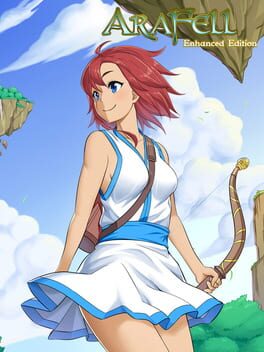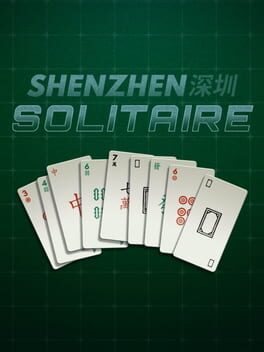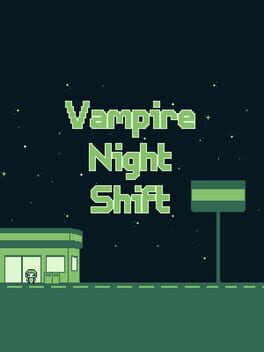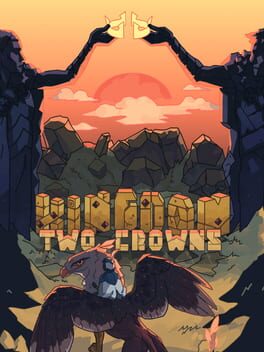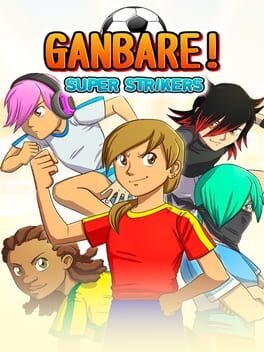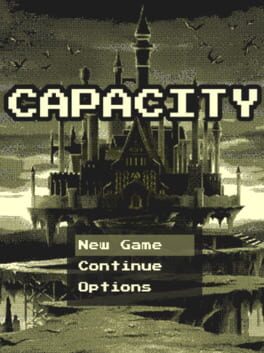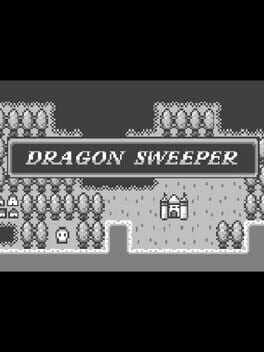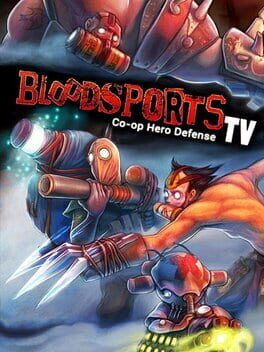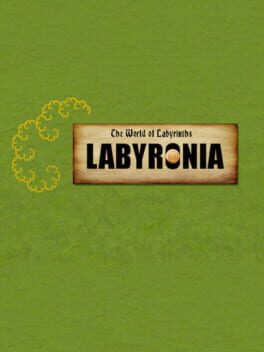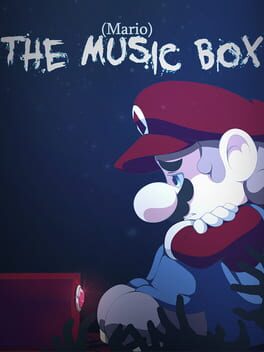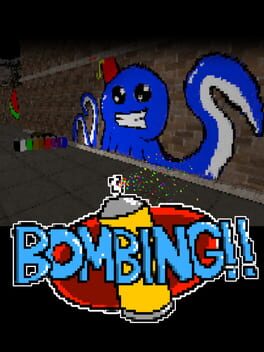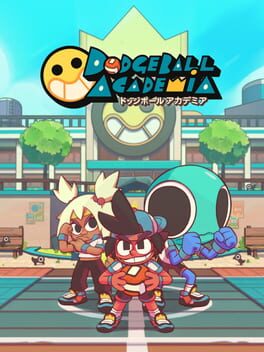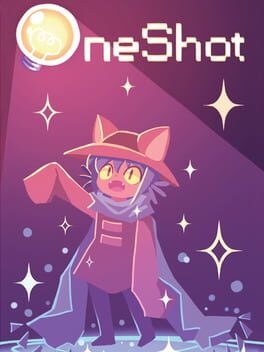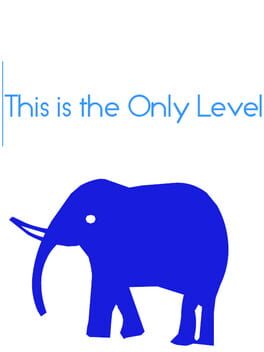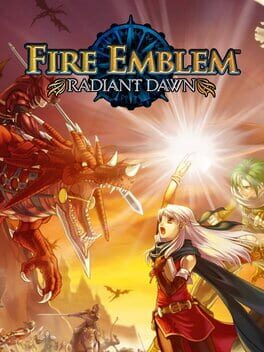umezono
Ara Fell is an impressive entry in the RPG Maker library that functions as a competent homage to retro-console JRPGs with its own signature flourishes. While it may not do things particularly different than its influences, it has a strong character that helps pull you through many of its limitations.
Art direction is one of the game's stronger points, as it has beautiful environments and spritework that really make the floating islands of Ara Fell feel "lived-in." The various caves and dungeons look far less compelling than the outer environment by comparison, but thankfully the game moves at a brisk enough pace that you're never in one area for too long.
From a gameplay perspective, Ara Fell is rather straightforward, almost to a fault. When considered within the vacuum of JRPGs though, Ara Fell doesn't really make any missteps, and in fact does some things quite creatively. It doesn't quite reach the level of Theia in its customization options, but they are there and can help you effectuate more unique strategies for the battles. I also really enjoy much of the added QOL here- recharging mana in between turns, and resetting HP and MP between fights make this game far less of a slog than its predecessors.
I really like Ara Fell not because I think it's doing anything different that its influences, but because I think Lita does a great job of filling the shoes of the great JRPG protagonists before her. Stegosoft hit a homerun with her, in my opinion. She feels more relatable and endearing than your average stoic hero, something that I always really enjoy (Final Fantasy X's Tidus comes to mind as a great example). Well into the midpoint of the game, Lita still grapples with the fact she doesn't want to do what she is fated to do, processing exactly as a normal teenage girl would. I don't want my heroes to be perfectly adapted to every situation, I want them to be like Lita: a little silly and unreliable, but tough and scrappy when the chips are down.
JRPGs want to be character-driven because its an important part of making the case for their long runtimes. Consequently, I much prefer a protagonist with a defined personality that clearly informs how they interact with the world around them. You can still have a good game with a silent protagonist, but they became far less interesting compared to the rest of the cast. Your party members in such games can be rich, dynamic characters whos actions within your relationship are the product of complex personalities and backstories; but the pendulum is weighted squarely in that direction. These characters do all the heavy lifting while you are simply a blank slate, perhaps consigned to a series of pre-determined dialogue choices. I find it far more interesting when a character can be their own person.
When I see Adrian and Lita's young romance play out, I find it compelling because its how two dorky young kids would act with each other. I can't really feel the same way about the relationships the heroes have in, say, the later Persona games or Fire Emblems because the dynamic is ultimately completely one-sided.
While the plot is as standard as it gets, Ara Fell works when you account for its scale because of how likable its characters are. While many of the named characters heavily rely on certain tropes, there is almost always some flavor to them that I find so endearing. Seri Kesu is a great example. A senior mage, who gives off a iron-walled unapproachable vibe- until she has conversation with a librarian from her childhood, in which its revealed she was a clumsy little nerd. I just love stuff like that. Where they might lack depth; Lita and her companions make up for it in character. They are colorful, strong-willed and funny; in the way you might endear yourself to the protagonists of a Saturday morning cartoon, I find myself experiencing emotional connection to them.
Art direction is one of the game's stronger points, as it has beautiful environments and spritework that really make the floating islands of Ara Fell feel "lived-in." The various caves and dungeons look far less compelling than the outer environment by comparison, but thankfully the game moves at a brisk enough pace that you're never in one area for too long.
From a gameplay perspective, Ara Fell is rather straightforward, almost to a fault. When considered within the vacuum of JRPGs though, Ara Fell doesn't really make any missteps, and in fact does some things quite creatively. It doesn't quite reach the level of Theia in its customization options, but they are there and can help you effectuate more unique strategies for the battles. I also really enjoy much of the added QOL here- recharging mana in between turns, and resetting HP and MP between fights make this game far less of a slog than its predecessors.
I really like Ara Fell not because I think it's doing anything different that its influences, but because I think Lita does a great job of filling the shoes of the great JRPG protagonists before her. Stegosoft hit a homerun with her, in my opinion. She feels more relatable and endearing than your average stoic hero, something that I always really enjoy (Final Fantasy X's Tidus comes to mind as a great example). Well into the midpoint of the game, Lita still grapples with the fact she doesn't want to do what she is fated to do, processing exactly as a normal teenage girl would. I don't want my heroes to be perfectly adapted to every situation, I want them to be like Lita: a little silly and unreliable, but tough and scrappy when the chips are down.
JRPGs want to be character-driven because its an important part of making the case for their long runtimes. Consequently, I much prefer a protagonist with a defined personality that clearly informs how they interact with the world around them. You can still have a good game with a silent protagonist, but they became far less interesting compared to the rest of the cast. Your party members in such games can be rich, dynamic characters whos actions within your relationship are the product of complex personalities and backstories; but the pendulum is weighted squarely in that direction. These characters do all the heavy lifting while you are simply a blank slate, perhaps consigned to a series of pre-determined dialogue choices. I find it far more interesting when a character can be their own person.
When I see Adrian and Lita's young romance play out, I find it compelling because its how two dorky young kids would act with each other. I can't really feel the same way about the relationships the heroes have in, say, the later Persona games or Fire Emblems because the dynamic is ultimately completely one-sided.
While the plot is as standard as it gets, Ara Fell works when you account for its scale because of how likable its characters are. While many of the named characters heavily rely on certain tropes, there is almost always some flavor to them that I find so endearing. Seri Kesu is a great example. A senior mage, who gives off a iron-walled unapproachable vibe- until she has conversation with a librarian from her childhood, in which its revealed she was a clumsy little nerd. I just love stuff like that. Where they might lack depth; Lita and her companions make up for it in character. They are colorful, strong-willed and funny; in the way you might endear yourself to the protagonists of a Saturday morning cartoon, I find myself experiencing emotional connection to them.
2016
2020
Utterly pointless and not as charming or quirky as it is trying to be. I will give it a star for somewhat approximating the soul crushing drudgery of minimum wage labor; except in real life you don't get to meet a cute vampire girl at the register.
EDIT: Ok, I just realized this is associated with Portland's indie dev community and it all makes sense now.
EDIT: Ok, I just realized this is associated with Portland's indie dev community and it all makes sense now.
2018
Ganbare! Super Strikers doesn't really have enough interesting aspects to it to really hook me in. It has a profound lack of content- its "story mode" is just a series of menus and a couple text bubbles, which means Ganbare! needs to rely on the strength of its actual gameplay. While the game itself is evocative of various oddball Japanese sports RPGs; it fails to either carve out its own strong niche or perfectly emulate the feel of something like a Camelot GBA title. The matches themselves have interesting implementation of the various rules and manuevers of soccer, but the tactical aspect is pretty unfulfilling. At its worst, you are slogging through a 30 minute match just to lose to a series of bad RNG rolls. Overall, its an admirable attempt but nothing to write home about.
TBD
This review contains spoilers
This isn't something I can rate, because its not really a game. It's a 5 minute treatise on the cycle of emotional abuse and how trapped you can feel, using the "demon castle" as an analogy. Is it clumsy and super played out to do something like this? Sure. Does that lessen the importance of the message? No.
2016
A very cute implementation of RPG aesthetic and mechanics into what I like to call "office computer" games. The game design itself is based off Minesweeper, in which you are given a clickable grid and your objective is to clear the board. The RPG elements are surface level accoutrement, but they work seamlessly. I played a couple sessions of Dragon Sweeper at work today while waiting on hold for an insurance company rep, and I think its pretty effective at what it sets out to do.
2015
Think League of Legends meets Borderlands and you have Bloodsports.TV. Despite being considerably simplified, the MOBA mechanics are suprisingly enjoyable when applied to a cooperative PvE environment. The main issue is lack of content- the game was functionally abandoned, so it features only a few maps and the same 8 playable characters. Despite this, Bloodsports sings of a better world; where instead of MOBAs being elaborate tools of self-harm where you hate everyone involved, they could have instead developed into games that are actually fun.
The World of Labyrinths: Labyronia is a 2018 "remaster" of a previous game by this developer, but the default tilesets thrown around in such a slapdash manner feels more 2006 than anything. Poor map design and mind-numbingly slow and repetitive combat that offer absolutely nothing worth playing. It's not necessary for a game on the RPG Maker software to be super transformative, but I expect more from my RPGs and this wasn't cutting it.
(I had the original Labyronia RPG with about 8 hours logged on Steam, but I apparently lost my save for it. Rather than take a crack at it again, I found that World of Labyrinths had been released as the definitive addition of Labyronia RPG. Labyrinthine apparently cooked up 4 whole sequels to this game as well (Labyronia RPG 2, Legends of Mysteria, Labyronia Elements, and The End of Labyronia: Nerubis) and I figured I really should just play the "remaster" before I try anything else.)
(I had the original Labyronia RPG with about 8 hours logged on Steam, but I apparently lost my save for it. Rather than take a crack at it again, I found that World of Labyrinths had been released as the definitive addition of Labyronia RPG. Labyrinthine apparently cooked up 4 whole sequels to this game as well (Labyronia RPG 2, Legends of Mysteria, Labyronia Elements, and The End of Labyronia: Nerubis) and I figured I really should just play the "remaster" before I try anything else.)
2015
This is a fascinating work of fanfiction insofar as I can't believe it exists, but obviously it just doesn't work on a conceptual level. Mario's contrast to the anime-style visuals borderlines on the comedic such that any tension the games setting can evoke is completely undermined. He is unceremoniously transplanted into a totally different kind of game; the plot itself being a standard Sen-style RPG Maker horror (think Misao or Mad Father). The "creepypastas" that would define mid 2010s internet culture- Sonic.exe, Ben Drowned, etc. worked on some level because they were appropriating the original games' context. The game world itself is being corrupted with the presence of the horror. By contrast, Music Box is just taking Mario and putting him in a Victorian-style mansion and having him deal with a setting completely unfamiliar to the actual games. I guess Luigi's Mansion would be the closest thing tonally, but Mansion didn't have anime characters running around.
Mario's personality in this game wavers between passive observer and tortured soul; which I guess is okay, because if you think about it, what really is Mario's personality? The Music Box simply wouldn't work if Mario was just the ceaseless automaton he is in other games. Problem is, Mario is... Mario. He's a plumber in a red hat and overalls, with a huge moustache and nose. You can't divorce that iconic look from the memories it evokes of playing the Mario games. As a result, watching Mario brood and grimly comment on some mutilated dead bodies is impossible to take seriously. It is just impossible not to laugh or find it amusing.
Music Box also runs into the problem that the games its based on aren't particularly good as "games." What endeared people to Sen's games was atmosphere and worldbuilding- something that this game fails at right from the start. Take that away and you're stuck with the extremely mediocre gameplay these titles have. The clunky exploration sequences and endless backtracking to solve puzzles bored me out of my mind. In true RPG Maker horror fashion, there are multiple red herrings that lead to you immediately dying and having to reload your save. These were mostly hilarious, but many of them are impossible to predict; meaning you need to save every time you reach a new area or you risk losing a bunch of progress.
For the reasons I have outlined, the game is very tedious if you can get past the absurdity of the concept. I played through to the first ending I could reach (of which there are multiple), which was this really strange rip-off of Puella Magi Madoka Magica before I called it quits. I don't think I'll ever revisit it; even though the game has a huge, branching storyline that encompasses multiple timelines and a sequel.
I will end this review on a positive note by saying "Immortal" is a banger and the game gets an extra star just for the opening music video.
Mario's personality in this game wavers between passive observer and tortured soul; which I guess is okay, because if you think about it, what really is Mario's personality? The Music Box simply wouldn't work if Mario was just the ceaseless automaton he is in other games. Problem is, Mario is... Mario. He's a plumber in a red hat and overalls, with a huge moustache and nose. You can't divorce that iconic look from the memories it evokes of playing the Mario games. As a result, watching Mario brood and grimly comment on some mutilated dead bodies is impossible to take seriously. It is just impossible not to laugh or find it amusing.
Music Box also runs into the problem that the games its based on aren't particularly good as "games." What endeared people to Sen's games was atmosphere and worldbuilding- something that this game fails at right from the start. Take that away and you're stuck with the extremely mediocre gameplay these titles have. The clunky exploration sequences and endless backtracking to solve puzzles bored me out of my mind. In true RPG Maker horror fashion, there are multiple red herrings that lead to you immediately dying and having to reload your save. These were mostly hilarious, but many of them are impossible to predict; meaning you need to save every time you reach a new area or you risk losing a bunch of progress.
For the reasons I have outlined, the game is very tedious if you can get past the absurdity of the concept. I played through to the first ending I could reach (of which there are multiple), which was this really strange rip-off of Puella Magi Madoka Magica before I called it quits. I don't think I'll ever revisit it; even though the game has a huge, branching storyline that encompasses multiple timelines and a sequel.
I will end this review on a positive note by saying "Immortal" is a banger and the game gets an extra star just for the opening music video.
2021
Dodgeball Academia fits nicely into the tradition of Nintendo's various sports-oriented roleplaying games, and wears its influences openly and with a lot of heart. The real issue that keeps me from getting into it is the combat.
It is actually moreso of a fighting game with RPG elements, where your granular reflex and timing are the most important aspects of the game. The RPG elements are "lighter" in comparison, tho they are definitely there, and team composition is very important. I just don't really like the game on a mechanical level.
You're often playing against a team of different enemies, all with differing abilities and projectiles. There can be up to like 8 balls active on the field at a given. This starts to pose an issue when you're controlling 3 units at the same time, who move in sync and cover a lot of space within your side of the court.
The game has serious readability issues because of the exaggerated size of your characters coupled with obnoxious on-hit effects and damage indicators. When theres like 6 different types of dodgeballs flying around, all producing different gameplay and visual effects, it becomes way too chaotic.
I really like some of the gameplay concepts and the different flavor of the party members, but I don't feel like I can really appreciate a lot of the combat due to the chaos and pacing of the battles. So ultimately its not really my thing.
It is actually moreso of a fighting game with RPG elements, where your granular reflex and timing are the most important aspects of the game. The RPG elements are "lighter" in comparison, tho they are definitely there, and team composition is very important. I just don't really like the game on a mechanical level.
You're often playing against a team of different enemies, all with differing abilities and projectiles. There can be up to like 8 balls active on the field at a given. This starts to pose an issue when you're controlling 3 units at the same time, who move in sync and cover a lot of space within your side of the court.
The game has serious readability issues because of the exaggerated size of your characters coupled with obnoxious on-hit effects and damage indicators. When theres like 6 different types of dodgeballs flying around, all producing different gameplay and visual effects, it becomes way too chaotic.
I really like some of the gameplay concepts and the different flavor of the party members, but I don't feel like I can really appreciate a lot of the combat due to the chaos and pacing of the battles. So ultimately its not really my thing.
2016
This review contains spoilers
So OneShot technically has two endings, there’s an initial ending and then there is the “Solstice” ending. The initial OneShot ending had me in tears. You can work really hard, do all the right things, try to figure everything out… and sometimes there still won’t be a right answer. But no matter what you choose, Niko chooses to believe in you. Sometimes a friend choosing to be there with you at your side can make all the difference and give you the opportunity to push through and make hard decisions.
An emotional gut punch with an optimistic and pure heart- it’s a beautiful triumph and a compelling narrative.
An emotional gut punch with an optimistic and pure heart- it’s a beautiful triumph and a compelling narrative.
While on the surface its just a physics-based puzzle platformer, it’s actually a significant contribution to the field of metagaming. In the tradition of games like Portal, it uses self-referential humor and fourth wall breakage to facilitate its obscure (and often frustrating) solutions. It didn’t feel good to play even back then, since it’s a Flash game asking you for precision platforming, but I really appreciate the ambition it had.
